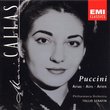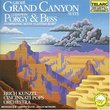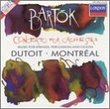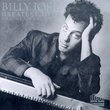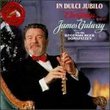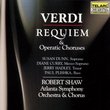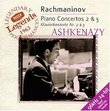| All Artists: Claude Debussy, Paul Jacobs Title: Debussy: Preludes for Piano Books I & II Members Wishing: 0 Total Copies: 0 Label: Nonesuch Release Date: 5/7/1992 Genre: Classical Styles: Forms & Genres, Short Forms Number of Discs: 2 SwapaCD Credits: 2 UPC: 075597303124 |
Search - Claude Debussy, Paul Jacobs :: Debussy: Preludes for Piano Books I & II
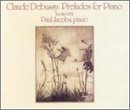 | Claude Debussy, Paul Jacobs Debussy: Preludes for Piano Books I & II Genre: Classical
Paul Jacobs was a specialist in the piano literature of the 20th century, which Debussy could be said to have influenced more than any other figure. Jacobs's recordings of the composer's major piano works remain exemplary-... more » |
Larger Image |
CD DetailsSynopsis
Amazon.com Paul Jacobs was a specialist in the piano literature of the 20th century, which Debussy could be said to have influenced more than any other figure. Jacobs's recordings of the composer's major piano works remain exemplary--the playing is technically fluent and musically imaginative, and the accounts are notable not only for their penetrating insight but for a suavity and expressiveness that bring each piece to scintillating life. The piano sound is slightly veiled but warm and resonant. --Ted Libbey Similarly Requested CDs
|
CD ReviewsStunning 03/25/2000 (5 out of 5 stars) "As a young boy, I heard only Walter Gieseking's old mono recordings of the Debussy Preludes, over and over again. They are ethereal, delicate, and beautiful, more so than any mono recording usually sounds. They have also been considered to be the definitive performance of the Preludes, and I loved them.Then Paul Jacobs came along. His recordings of the Preludes, made in 1978, not only had fantastic sound quality, but Paul's style did Debussy justice where Gieseking's never could, and this listener realized, with astonishment, at how many voices a piano can have. Not every Prelude is a whisper, and although Paul's fingers could make the piano tiptoe through "Danseuses de Delphes," he could make it jump and leap in "Les Collines d'Anacapri." His precision of phrasing and the restraint in his use of dynamics makes the eruption of "Le Vent dans la plaine" startling. And Jacobs makes it sound so easy. As a writer for Fanfare put it: "I would advise all piano collectors to lose no time in acquiring this marvelous set. If you haven't room, chuck out whatever (now forever obsolete, superseded, palpably inferior) recorded performances you may be giving shelf space."The hype you have read here and elsewhere about Jacobs's Preludes isn't hype. The five stars I give this CD set is not given lightly. These recordings are really that good. In fact I would, and may someday, crawl over broken glass to retrieve my 2CD set of Paul Jacobs's recordings of the Debussy Preludes, livres 1 et 2." The best, a treasure! mop-n-glow | new york, ny | 05/13/1999 (5 out of 5 stars) "Out of the dozens of recordings of Debussy's Preludes available, this one will probably remain my favorite for life. Mr. Jacobs's sensitivity and skill are staggering and the Steinway sounds just superb. When I think of Debussy I think of THIS recording.If my music collection were to go up in flames I'd dive in to save this one." Poetic interpretations Timothy Paradise | Saint Paul, Mn. | 08/25/2006 (5 out of 5 stars) "After being extremely disappointed with the Michelangeli recordings I bought of these pieces, I bought the Paul Jacobs' performances.
Jacobs is a poetical pianist, not strictly literal, rather someone who searches for halo and echo, shine and gloom, adrenaline rush and repose, someone to whom a single note is able to convey musical meaning. Fellow musicans can learn from him." |

 Track Listings (12) - Disc #1
Track Listings (12) - Disc #1
